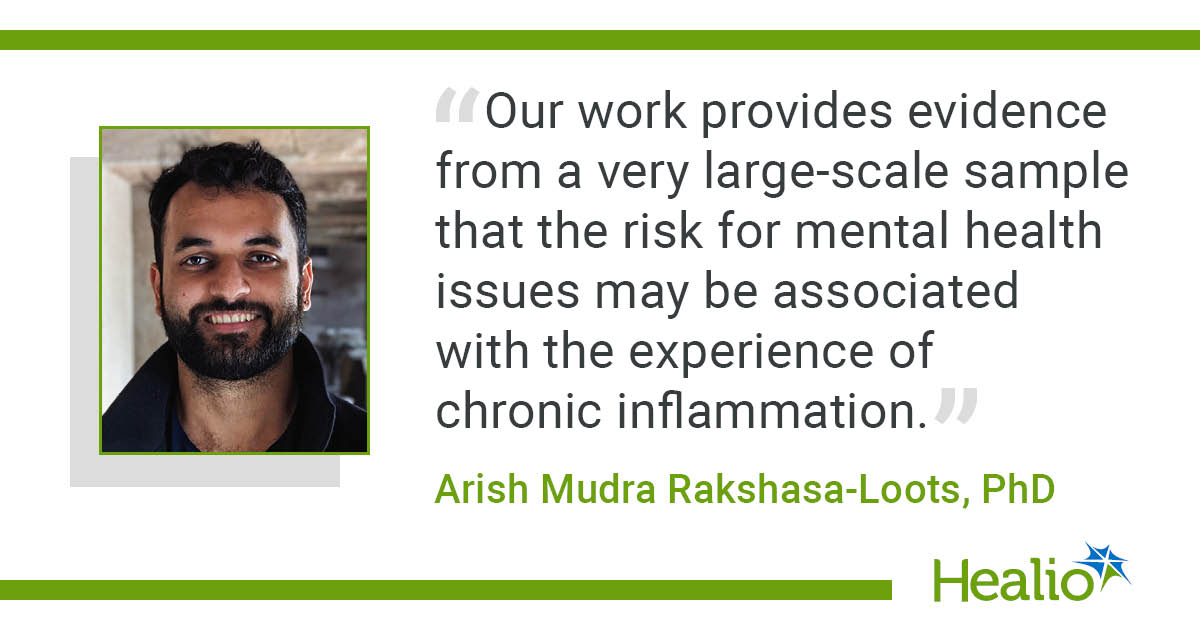September 15, 2025
2 min read
Key takeaways:
- Patients with chronic inflammation were at twice the risk for depression, bipolar disorder and anxiety vs. the general population.
- Mental health screenings should be integrated into care pathways for patients with autoimmune conditions.
Patients with autoimmune conditions and chronic inflammation may be at twice the risk for mental health disorders such as depression, bipolar disorder and anxiety vs. the general population, according to data published in BMJ Mental Health.
“We have more than 20 years of research suggesting that there may be a link between inflammation and mental health issues,” Arish Mudra Rakshasa-Loots, PhD, of the division of psychiatry and center for clinical brain sciences at The University of Edinburgh, told Healio.

According to Mudra Rakshasa-Loots, some immunopsychiatry clinics in Europe have begun early-stage testing of anti-inflammatory interventions for patients with mental health disorders.
“Our work provides evidence from a very large-scale sample that the risk for mental health issues may be associated with the experience of chronic inflammation,” he said.
To assess the link between autoimmune disease and affective disorders, Mudra Rakshasa-Loots and colleagues examined data from the Our Future Health research cohort, which included 1,563,155 participants (mean age, 53.2 years) in the United Kingdom.
Among the cohort, 37,808 patients had lifetime diagnoses of one of six autoimmune conditions: rheumatoid arthritis, Graves’ syndrome, inflammatory bowel disease, lupus, multiple sclerosis and psoriasis.
According to the researchers, patients with an autoimmune condition demonstrated significantly higher rates of depression (28.8% vs. 17.9%), bipolar disorder (28.4% vs. 17.8%) and anxiety (29.3% vs. 18%) compared with healthy participants. The researchers additionally found risk for mental health issues in this patient group remained higher even after controlling for variables such as income, history of chronic pain and history of social isolation.
“Women were at higher risk for mental health disorders, even when compared with men with the same autoimmune conditions, and the risk was nearly identical across all of the mental health disorders we studied,” Mudra Rakshasa-Loots said.
He added that regular mental health screenings and tailored interventions should be integrated into care pathways for patients with autoimmune conditions.
“Future research should aim to identify the mechanisms behind this high prevalence of mental health issues, and in particular explore the biological or social reasons behind the higher prevalence among women,” he said.
For more information:
Arish Mudra Rakshasa-Loots, PhD, can be reached at Arish.MRL@ed.ac.uk.









